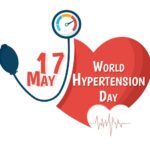India
healthysoch
New Delhi, November 02, 2023:
Healthcare is witnessing a monumental shift, driven by the integration of digital technologies. This digital transformation is a prescription for change that is reshaping the industry. In this listicle, we’ll delve into four key aspects of how digital transformation is revolutionizing healthcare.
1. Electronic Health Records (EHRs): The Digital Backbone of Healthcare
Digital transformation in healthcare involves a transition from paper-based records to Electronic Health Records (EHRs). These digital archives centralize patient information, making it easily accessible to authorized healthcare professionals. EHRs streamline care coordination, reduce errors, and empower patients to engage in their healthcare decisions.
EHRs empower patients by providing easy access to their medical history and test results. This improved communication between patients and healthcare providers enhances care quality and safety. EHRs also improve data accuracy, reducing the risk of medical errors and allowing healthcare professionals to make more informed decisions.
2. Telemedicine: Bridging the Gap with Virtual Care
Telemedicine is at the forefront of the healthcare digital transformation. It brings healthcare services to patients’ fingertips, offering remote consultations, diagnoses, and treatment plans. This technology transcends geographical limitations, providing healthcare access to underserved areas and connecting patients with specialized care, no matter where they are located. Telemedicine is redefining the patient-provider relationship, making healthcare more accessible and convenient. Patients can seek expert advice from the comfort of their homes, saving time and reducing the need for travel. It’s a vital component of healthcare’s digital revolution that’s enhancing patient care and improving access to medical services.
3. Wearable Health Tech: Your Health Companion
Wearable devices, including smartwatches and fitness trackers, have evolved into personal health companions. They continuously monitor vital signs, physical activity, and sleep patterns. Users can access real-time data about their health, making it easier to maintain and improve well-being. Wearable health tech fosters proactive health management. It empowers individuals to take charge of their health and share data with healthcare providers for a more personalized approach to care. The integration of wearables with healthcare is a testament to the growing role of technology in patient engagement.
4. Artificial Intelligence (AI): Revolutionizing Healthcare
Artificial intelligence is revolutionizing healthcare by accelerating disease diagnosis and treatment planning. Machine learning algorithms analyze extensive datasets to identify patterns and provide insights into patient care. AI is employed in diverse areas, from radiology image analysis to drug discovery. Noventiq, a global leader in digital transformation and cybersecurity solutions, recognizes the potential of Artificial Intelligence (AI) in transforming healthcare. AI empowers both doctors and patients, creating a unified ecosystem in healthcare and reducing human error and improving caregiving, leading to a new era of medical practice with better results and a higher quality of life for patients. As technology continues to advance, AI’s contribution to healthcare is set to expand, promising more innovative solutions to medical challenges.
Digital transformation in healthcare is much more than a technological shift; it’s a prescription for change. It’s enhancing patient care, improving access to medical services, and streamlining healthcare processes. As technology continues to evolve, healthcare is poised for further transformation, ensuring a healthier and more promising future for all.
healthysoch







